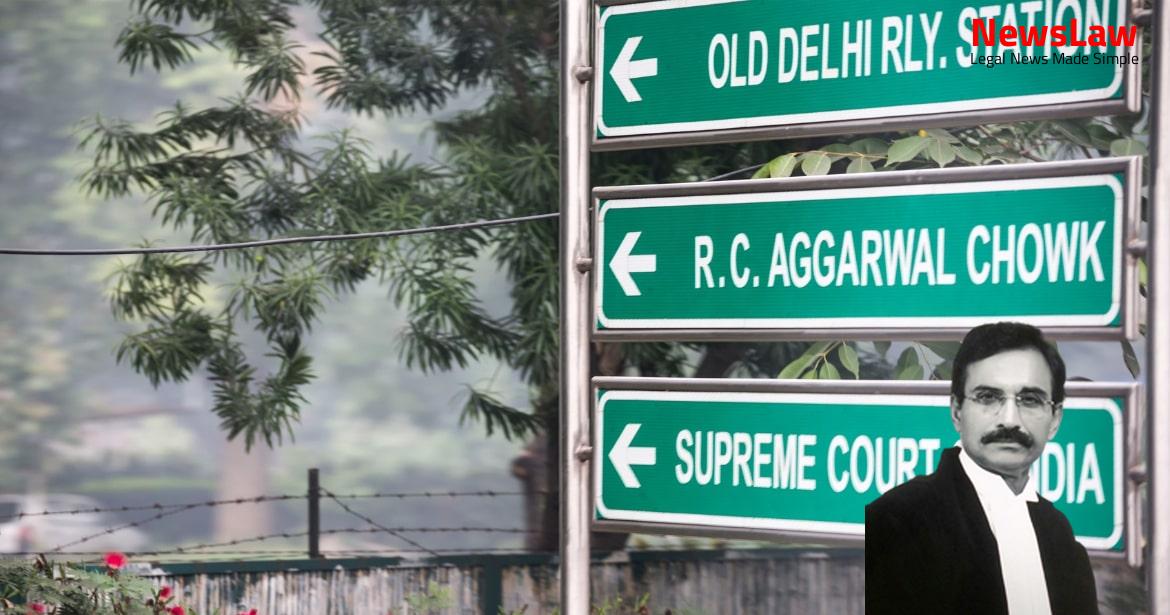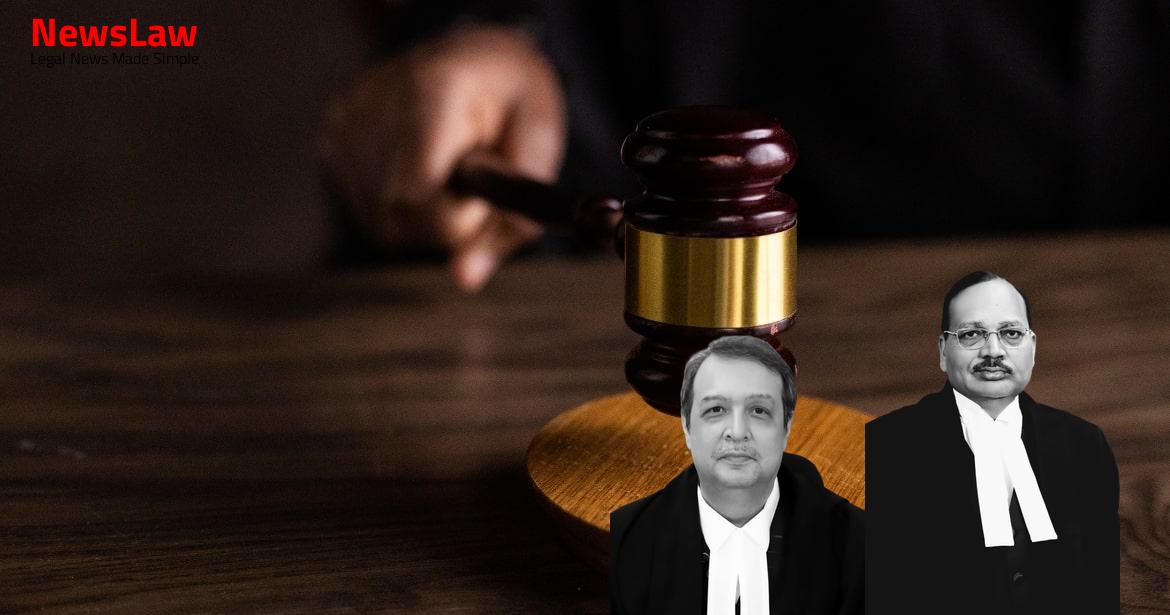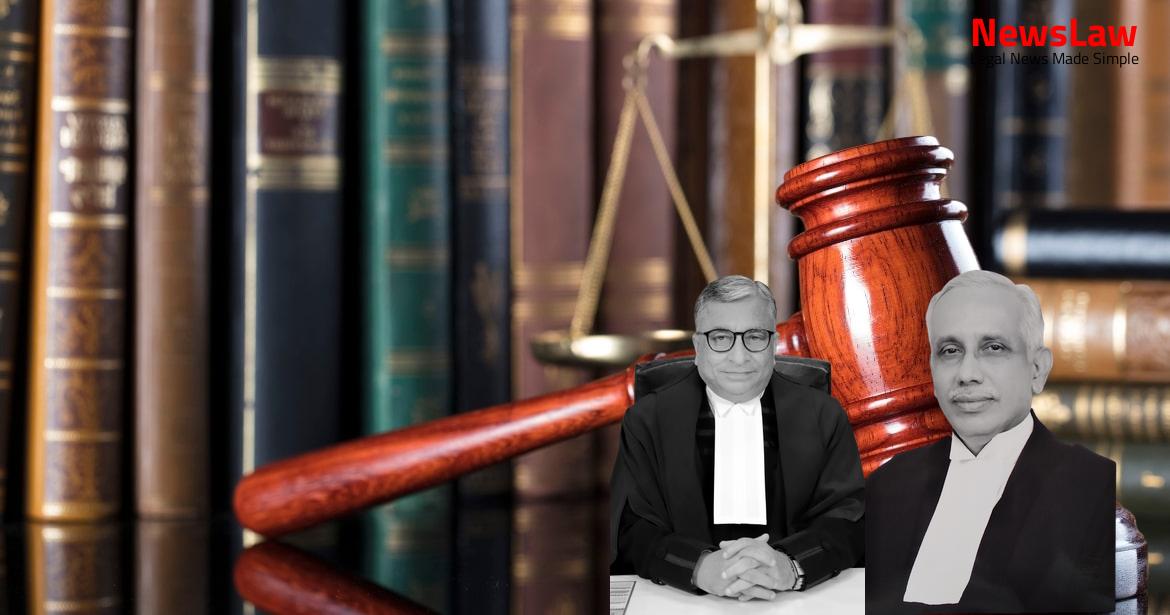Explore a recent judicial analysis that delves into the complex issue of reservation for in-service candidates in Super Specialty courses. The court’s examination of legislative competence, constitutional provisions, and the application of legal principles sheds light on this contentious topic. Stay updated on the latest legal developments and gain insights into the court’s perspective on this crucial issue.
Facts
- The Free Abilympics Council (FAC) is a body registered under the Tamil Nadu Societies Registration Act, 1975 which promotes the cause of the disabled.
- FAC organized an event in Chennai with participants from various parts of India and other countries.
- The event was aimed at creating awareness about the talents and capabilities of persons with disabilities.
- FAC claimed that the said G.O. issued by the Tamil Nadu government restricted their activities and infringed upon their fundamental rights.
- FAC argued that the G.O. was arbitrary, unreasonable, and violative of Articles 14, 19, and 21 of the Indian Constitution.
- The court examined the contentions raised by FAC and the arguments put forth by the state government in defense of the G.O.
- After careful consideration, the court ruled in favor of FAC, declaring the said G.O. as unconstitutional and invalid.
- The High Court of Judicature at Madras issued a direction to implement a Government Order for the academic year 2021-2022.
- The interim order of the Supreme Court from November 27, 2020, directed counselling for admission to Super Specialty Medical Courses without reservations for in-service doctors for the academic year 2020-2021.
- The petitioners and appellants requested the continuation of the interim order for the academic year 2021-2022, which was opposed by the State and in-service candidates.
- The parties were heard on whether the interim protection granted for the academic year 2020-2021 should also apply to the academic year 2021-2022.
- Dushyant Dave, Shyam Divan, and Gopal Sankaranarayanan represented the writ petitioners/appellants, while Aishwarya Bhati represented the Union of India in the hearing.
Also Read: Reversal of High Court’s Decision on Auction Sale Confirmation
Arguments
- The petitioners argue that reservation for Super Specialty courses is impermissible based on judgments in Indra Sawhney and Dr. Preeti Srivastava cases.
- They contend that admissions should be based solely on merit for Super Specialty courses.
- Concern is raised that faculty availability for Super Specialty seats may decrease if reservations are not allowed.
- NEET Bulletin clause 10.10 states no reservation for Super Specialty courses.
- The Union of India and the state of Tamil Nadu support maintaining interim protection granted previously.
- The State of Tamil Nadu argues that it has the legislative competence to provide reservations for in-service candidates based on the Tamil Nadu Medical Officers Association case.
- Counter arguments suggest the Tamil Nadu case does not apply to Super Specialty courses and that regulations by the Medical Council of India prevail.
- In-service reservations aim to retain candidates until superannuation to fill faculty positions.
- Concern is raised about the potential reduction in Super Specialty seats due to faculty shortages.
- In-service candidates are required to sign bonds to serve the government till superannuation.
- The basic contention is that the reservation of 50% Super Specialty seats for in-service candidates in Tamil Nadu is legally contentious.
- Reliance is placed on Dr. Preeti Srivastava and Tamil Nadu Medical Officers Association cases by opposing parties.
- Requests are made to continue the interim order for the academic year 2021-2022.
- The Union of India cannot be permitted to oppose the separate channel provided for in-service candidates by the State of Tamil Nadu.
- The Government of India already provides a separate entrance examination for postgraduate and Super Specialty seats for in-service candidates.
Also Read: Interest Compensation Dispute in Property Demolition Case
Analysis
- The Court clarified that it had not expressed any opinion on the validity of the G.O. issued after the admission process had begun.
- The G.O. in question for the academic year 2021-2022 was notified before the admission process commenced.
- The facts of the case closely align with a previous case, Tamil Nadu Medical Officers Association.
- The Court differentiated the facts of the case from another case, Dr. Preeti Srivastava.
- The interim order of 27 November, 2020, was issued for the academic year 2020-2021 regarding reservation in admissions to Super Specialty medical courses.
- The Court emphasized that the principle behind a judgment is its ratio decidendi, not individual observations.
- There was a discussion on the issue of disparity in qualifying marks for reserved category candidates.
- The Court found it impermissible to lower qualifying criteria for reserved category candidates resulting in significant disparities.
- The decision in the case would only be binding for the academic year 2020-2021.
- It was recommended that separate entry channels for candidates should include mandatory service in rural or remote areas.
- The judgment discusses the issue of whether a reservation or a separate channel for admission can be provided to in-service candidates for postgraduate medical courses.
- It distinguishes between different cases where this question was considered by the courts.
- The judgment concludes that states have the legislative competence to provide a separate source of entry for in-service candidates seeking admission to postgraduate medical courses.
- It emphasizes that in-service doctors entering through this separate channel must serve in specified areas for a certain period and execute bonds.
- The judgment also discusses the validity of Regulation 9 of the MCI Regulations, 2000, in relation to reservation for in-service candidates.
- It cites differences in views between various decisions and emphasizes the need to apply legal principles to specific facts of each case.
- The judgment asserts that the principles of law should be understood correctly in determining the ratio decidendi of a case.
- It refers to specific judgments and constitutional provisions to support the conclusion that states have the authority to provide reservation or separate channels for in-service candidates in postgraduate medical courses.
- The interim protection granted for the academic year 2020-2021 has been rejected.
- The State of Tamil Nadu is allowed to continue the counselling for the academic year 2021-2022, considering the reservation provided in G.O. 36.
- The matters are listed for hearing after vacations.
Also Read: Legal Interpretation of Extension of Judicial Member’s Term
Case Title: N. KARTHIKEYAN Vs. THE STATE OF TAMIL NADU (2022 INSC 317)
Case Number: W.P.(C) No.-000053 / 2022



